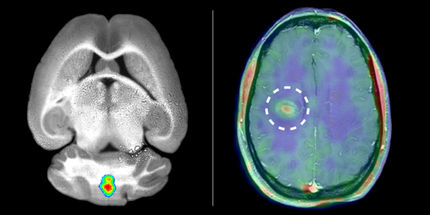Merck KGaA: Enrollment Completed for ORACLE MS Study of Cladribine Tablets in Patients at Risk of Developing MS
Advertisement
Merck KGaA announced the completion of patient enrollment in the ORACLE MS 1 clinical study. This randomized, double blind, placebo-controlled, international Phase III trial is designed to evaluate the therapeutic effects of Cladribine Tablets on the time to conversion to multiple sclerosis (MS) in people with a first clinical event suggestive of the disease. A total of 617 patients considered at high risk of developing MS due to a recently experienced isolated demyelinating event and having magnetic resonance imaging (MRI) brain scans consistent with early signs of MS were randomized in the study.
“The clinical development program of Cladribine Tablets is designed to characterize the potential therapeutic effects of Cladribine Tablets therapy at the various stages of multiple sclerosis,” said Dr. Bruno Musch, Merck Serono’s Head of Global Clinical Development Neurodegenerative Diseases. “The completion of patient enrollment in the ORACLE MS study is a significant milestone as this study will provide insight on the impact of Cladribine Tablets therapy on the course of multiple sclerosis when administered early in the disease process.”
Besides the ORACLE MS study, the Phase III program of Cladribine Tablets includes the completed CLARITY 2 study and the ongoing CLARITY EXTENSION study in patients with relapsing-remitting MS. Cladribine Tablets were recently approved in Australia and Russia as a treatment of relapsing-remitting MS, under the brand name Movectro®, and are under regulatory review in other countries. Registration applications for Cladribine Tablets as a treatment for relapsing-remitting MS are supported by the results from the CLARITY study.
The ORACLE MS study is a two-year (96-week), randomized, double-blind, placebo-controlled, international trial. It randomized 617 patients considered at risk of developing MS due to a recently experienced isolated demyelinating event (e.g. optic neuritis, myelopathy or brainstem syndrome) and having MRI brain scans consistent with early signs of MS. Study participants were randomized to one of three different treatment groups consisting of two different dose regimens of Cladribine Tablets or matching placebo tablets (1:1:1 ratio).
Patients will be treated for a period of two years (96 weeks), or up to the time when they experience a second attack leading to a diagnosis of clinically definite MS, in which case they would be offered open-label treatment with Rebif® 44 mcg three times a week for a 96-week maintenance treatment period. Patients who do not convert to clinically definite MS within the initial 96-week period of the study will be eligible to enroll in a 96-week long-term follow-up treatment period. These maintenance and long-term follow-up periods of the study are intended to assess the effect of early treatment with Cladribine Tablets on relapses and subsequent treatment response to disease-modifying therapy for relapsing-remitting MS and to evaluate the sustained effect of Cladribine Tablets in delaying the development of definite MS.
In the study, Cladribine Tablets are given in two (3.5 mg/kg total dose) or four (5.25 mg/kg total dose) treatment courses in the first year, with each course consisting of once daily administration for four to five consecutive days (depending on patient weight), which means study patients take Cladribine Tablets for only 8 to 20 days during the first year. In the second year, two treatment cycles are administered to both patient groups receiving Cladribine Tablets, meaning that patients take Cladribine Tablets for 8 to 10 days during the second year.
The primary endpoint of the ORACLE MS study is time to conversion to clinically definite MS, according to the Poser criteria, defined by either a second attack, or a sustained increase in EDSS. Other endpoints include time to conversion to MS according to the McDonald criteria (the main secondary endpoint), assessments of MRI brain scans, and disability progression.



























































